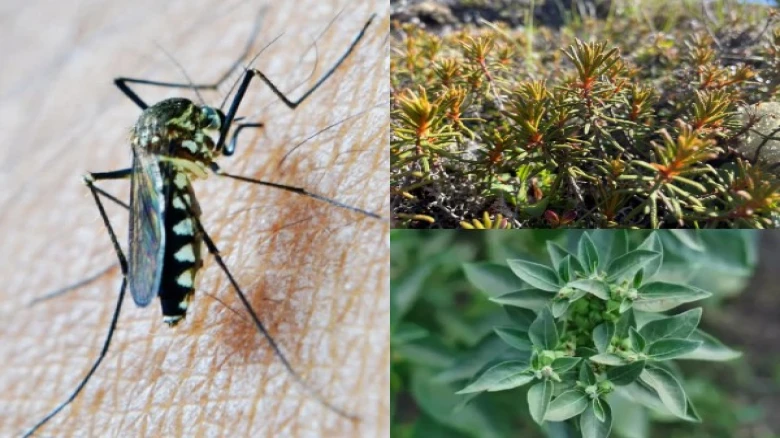Regional

The study, which was just published in the journal ACS Omega, discovered that a component found in Labrador tea...
Digital Desk: Researchers have discovered substances in the leaves of a traditional medicinal plant found in the United States and Canada that they believe could aid in the fight against the parasite that causes malaria.
The study, which was just published in the journal ACS Omega, discovered that a component contained in Labrador tea – numerous, closely related Rhododendron plants — responded against both strains of the malaria parasite.
According to the experts, these are small, evergreen shrubs with fuzzy leaves that are steeped to make herbal teas traditionally utilised by indigenous communities in the United States and Canada.
Previous research has indicated that essential oils produced from plants have antibacterial capabilities, which could aid in the fight against antibiotic-resistant microorganisms, they said.
Researchers from the University of Laval in Canada and colleagues aimed to describe and test the antiparasitic activity of Dwarf Labrador tea, or Rhododendron subarcticum, for the first time.
The leaves of R. subarcticum were collected in Nunavik, an area in northern Quebec, Canada.
The essential oil was extracted from the leaves and examined using gas chromatography, mass spectrometry, and flame ionisation detection to identify 53 components.
They discovered that ascaridole made up 64.7% of the oil, followed by p-cymene (21.1%). According to the researchers, this combination of chemicals has not before been observed in closely comparable North American Labrador tea kinds, although it has been discovered in variants originating in Europe and Asia.
The researchers subjected two strains of Plasmodium falciparum, a parasite that causes malaria, to either the oil or simply ascaridole. One of the strains in the experiment was resistant to known antimalarial medicines.
The study discovered that ascaridole was the primary component that inhibited both strains of the parasite, which is consistent with other antiparasitic traditional treatments that contain the molecule.
The results of the study emphasise the need of researching and conserving plants used in traditional medicines, particularly those from harsher climates affected by climate change, said the researchers.
Leave A Comment